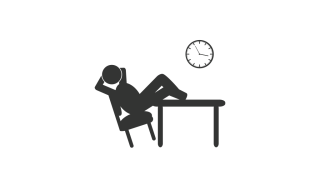Learning how to slow down and think it through is counter-intuitive for the American worker. In the advertising business, we have to be creative, which is impossible without slowing down and thinking it through. Yes, we’re naturally talented at coming up with ideas and exercising creativity, but truly good creative (we use that word as a noun in our biz) comes from deep, purposeful, critical thought.
I do my best work when my hands are busy and my mind is idle (which is way too easy for me!) When I have a creative task to complete, I’ll often do menial tasks with my hands to help me think. I can exercise, drive long distances, work in the yard, sweep the garage—anything to free my mind. The idea is to disengage from performance and begin to process.
So how do you slow down and think it through? Here are some tips:
- Go dark. Shut down the computer, phone, and TV. Get in a private spot without interruptions. Don’t fall into the trap that your “Smartphone is your window to inspiration” or some other bogus line. It’s a time, energy, and creativity sucker. It’s a tool, nothing more. Nobody ever came up with a great idea while posting photos of cats. Disengage for a short time. Facebook will be there when you come back.
- Target an issue, problem, or question. If you have a problem to solve, define the problem clearly before you start. If you need to be creative, decide on what you want the creativity to accomplish. What is needed? What is missing? It’s ok to let your mind wander a little, as long as you don’t start daydreaming.
- Ask what, not how. When you think it through, try to avoid the mind-numbing trap of answering all the questions. Just answer one: what. What will work best? What will solve the problem? What do you want it to be? What is the best scenario possible? Put it out there and deal with the how later. You’ll be shocked at how easy “how” can become when you have the full force of your creative energy behind it. (see “The Process of Creativity”)
- Write it down. When your solution or idea comes, jot it down even if you don’t think you need to. When you think critically, your brain releases chemicals (endorphins, adrenaline) that make it sharper than normal. Two days later, you won’t have that advantage, but you’ll have your notes.
- Do it daily. Take 15 minutes each day and tackle one issue. Learn what process works best for you and perfect it. If you don’t do it daily, it may take more time to reconnect when you start. Sometimes it takes several days of disconnection from your work to get back into “think it through” mode. For me, it’s about 3 days. I need that time to decompress, gain some distance from the question, and then clarity and focus comes back. Hint: This is why God made vacations. Take them! One of the worst things you can do is NOT take time off.
Dan Sullivan, Founder of The Strategic Coach series, says we should consider shifting to a 4-day workweek to be more productive. He believes that disengaging from the grind of work on Fridays to rest, think, and process (think it through) is more productive than a 5 or 6-day workweek.
Whatever you do, take some time to slow down and think it through. Then take some time to tell us how it went. I would love to hear from you, so please comment below with your thoughts and ideas.
